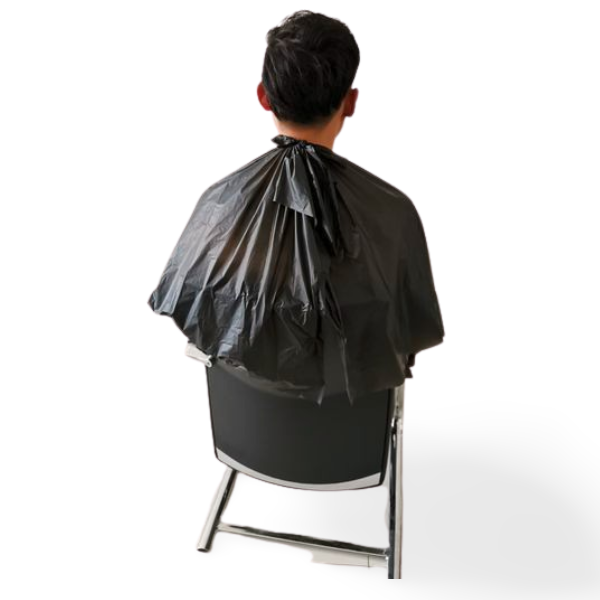Industry news
Revolutionizing Salon Sustainability: Introducing Biodegradable Hairdressing Capes
In an era where environmental consciousness is at the forefront of global conversations, it's no surprise that industries across the board are seeking innovative ways to reduce their ecological footprint. In this quest for sustainability, the hairdressing industry has taken a significant step forward with the introduction of biodegradable hairdressing capes. Join us as we explore this remarkable solution that combines style, functionality, and environmental responsibility.
The Rise of Biodegradable Hairdressing Capes:
Hairdressing capes are an essential tool for hairstylists, protecting clients from loose hair, chemicals, and dyes during salon procedures. However, the traditional plastic capes have posed a significant challenge to the industry's sustainability efforts. Recognizing the need for a greener alternative, forward-thinking companies have pioneered the development of biodegradable hairdressing capes, revolutionizing the way salons operate.
What Makes Biodegradable Hairdressing Capes Unique:
Biodegradable hairdressing capes are designed to address the ecological concerns associated with their non-biodegradable counterparts. Here are the key features that make them stand out:
1. Environmentally Friendly Materials: These capes are crafted from natural, plant-based materials like cornstarch, bamboo, or other sustainable fibers. Unlike plastic capes that take hundreds of years to decompose, biodegradable capes break down naturally in a relatively short time, reducing waste and minimizing harm to the environment.
2. Reduced Carbon Footprint: The production process of biodegradable capes consumes fewer resources and emits fewer greenhouse gases compared to traditional plastic capes. By switching to these eco-friendly alternatives, salons can significantly reduce their carbon footprint and contribute to a greener planet.
3. Versatility and Functionality: Biodegradable capes offer the same level of protection and durability as their plastic counterparts. They are water-resistant, lightweight, and comfortable to wear, ensuring a seamless hairdressing experience for both stylists and clients. These capes can also be easily disposed of in compost or recycling bins, further streamlining the waste management process.
4. Meeting Consumer Expectations: As environmental awareness grows, consumers are increasingly seeking sustainable choices in all aspects of their lives, including their salon experiences. Salons that adopt biodegradable hairdressing capes demonstrate their commitment to eco-consciousness, gaining a competitive edge and attracting a broader clientele.
The Positive Impact of Biodegradable Capes:
By embracing biodegradable hairdressing capes, salons play an active role in reducing plastic waste and protecting our planet. Here are some significant benefits that arise from making the switch:
1. Waste Reduction: Traditional plastic capes contribute to the ever-growing problem of plastic pollution. Biodegradable capes, on the other hand, break down naturally, reducing waste and preventing long-term environmental damage.
2. Eco-Friendly Reputation: Salons that adopt sustainable practices, including biodegradable capes, earn a reputation as responsible businesses committed to protecting the environment. This positive image can attract environmentally conscious clients and create a loyal customer base.
3. Improved Salon Efficiency: Biodegradable capes simplify the cleanup process, as they can be easily disposed of in compost or recycling bins. This saves time and effort for stylists, allowing them to focus more on delivering exceptional service to their clients.
4. Compliance with Environmental Regulations: As governments and regulatory bodies introduce stricter regulations on single-use plastics, switching to biodegradable alternatives ensures salons remain compliant with these evolving guidelines.
Conclusion:
Biodegradable hairdressing capes are a groundbreaking innovation that addresses the environmental concerns of the hairdressing industry. By replacing traditional plastic capes with these eco-friendly alternatives, salons can do their bit to protect our ecology.


